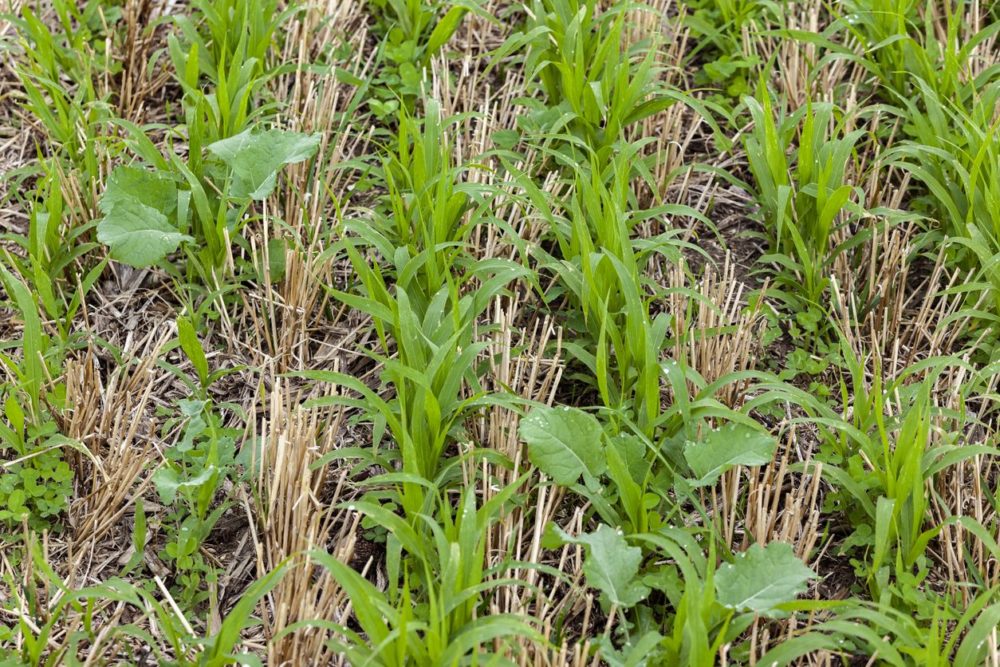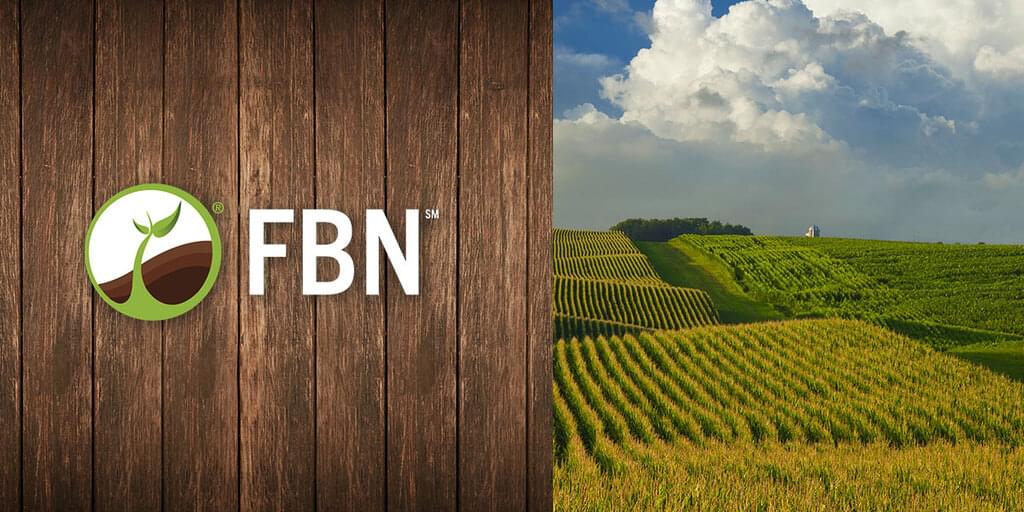Recently, Farmers Business Network (FBN) announced it had “significantly expanded” its partnership with agriculture giant Archer Daniels Midland (ADM) that supports farmers working with or transitioning to regenerative agriculture practices.
The idea is to make such farming practices accessible to more commodity farmers in North America, and to do so at scale. More importantly, the program aims to reward farmers for making this transition, which is no small feat for many.
“This is probably the fundamental platform that can enable sustainability at scale in the commodities,” Charles Baron, co-founder and CMO at FBN, tells AgFunderNews.

‘Real dollars’ reaching farmers
“This is not a small program by any means,” Baron says. “The total rewards to farmers this year via ADM/FBN programs can total well over $22 million.This is now the type of thing that is rolling out at scale, and you’re starting to see real dollars going back to farmers.”
ADM is one of the world’s largest buyers of grain, operating 278 procurement centers and 182 processing plants in North America alone.
“We’ve worked with over 55,000 farmers in North America who deliver grain to ADM, and so they’re a massively influential operator in the global supply chain,” says Baron. “They also work downstream with the largest CPG companies, the largest food companies, who will in turn be able to participate and incentivize sustainable practices.”
He adds: “This really is the key to enabling sustainable or regenerative agriculture with rewarding farmers at scale in the commodity crops. And we view this as a very fundamental to the future of the food system.”
He notes that as FBN has grown over the years, it’s seen increasing interest from customers wanting assistance with sustainable practices and incentives.
“As we built out both our crop marketing initiatives and our data analytics initiatives, sustainability became a natural use of that information our grain buyers and downstream partners [wanted to] enable,” he says.
“Over the course of those years, we’ve developed various partnerships with folks like ADM, POET [ethanol] and a number of others to be able to directly perform the monitoring and verification steps for farmers to be able to participate in sustainable or regenerative agricultural programs and capture premiums downstream.”

2 million acres and counting
FBN and ADM launched an initial collaboration in 2022 that allowed ADM customers to use FBN’s farm business management platform Gradable. The program aims to reward farmers for conservation practices such as cover cropping, low or no tillage and emissions reductions.
Since launch, the partnership has enrolled 1,500 growers and accounted for more than 1 million acres of farmland.
Through Gradable, FBN provides the technology for the program.
Growers submit data to Gradable, which can validate their sustainability practices and calculate corresponding environmental outcomes. Farmers can access the service and link their ADM account information through the FBN app to see scale tickets, settlements and contracts needed when they sell grain.
“Through ADM, [Gradable] provides premiums and incentives for growers, up to $25/acre for either outcomes or implementation practices,” notes Baron.
The Gradable integration is “open to anyone who sells grain to ADM,” he adds. Eventually, the integration will handle payments as well.
These growers can also use the FBN app to enroll in ADM’s re:generations program, which is one of the projects backed by the USDA’s Partnerships for Climate-Smart Commodities scheme. Via re:generations, growers can access financial and technical support to adopt or continue regenerative agriculture practices.
ADM and FBN aim to expand re:generations to more than 2 million acres, 18 US states and three Canadian provinces in 2023. Over 3,000 growers are expected to participate for commodities such as corn, soybeans, wheat and cotton.
Rewarding sustainability
As a concept, “regenerative agriculture” has no standard, industry-wide definition. In the context of the ADM partnership, Baron says it’s about being able to provide rewards for specific sustainability practices and outcomes on the farm.
Previously, partnerships like this one had to happen on a one-off basis with individual buyers or companies, he adds.
“You had dozens of attempts with food companies or downstream players trying to figure out how to reach growers directly, how to do monitoring, how to do verification, how to incentivize them, how to enroll them, which is a very fragmented process. And then largely, it wasn’t taking place in the commodity crops.”
Growers, says Baron, need clear guidance, good protocols and “a very simple technology and onboarding process.”
“For farmers, it ultimately comes down to, ‘How am I going to pay for these changes? Is it going to be worth it for me in my operation? What are the risks, how am I going to manage and implement these changes?’
“Once a grower can start monitoring and getting into the business practice of participating in sustainability programs or regenerative programs, a host of other opportunities can open up to them.”




